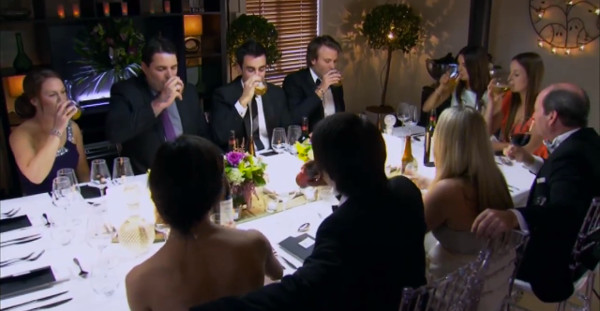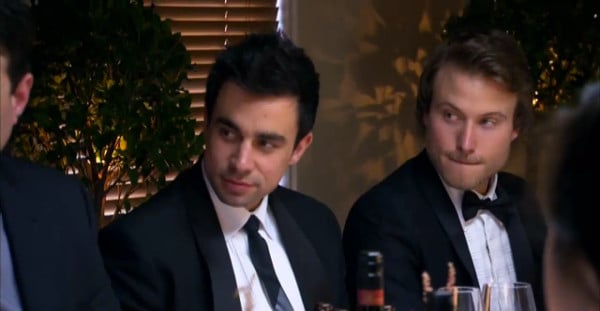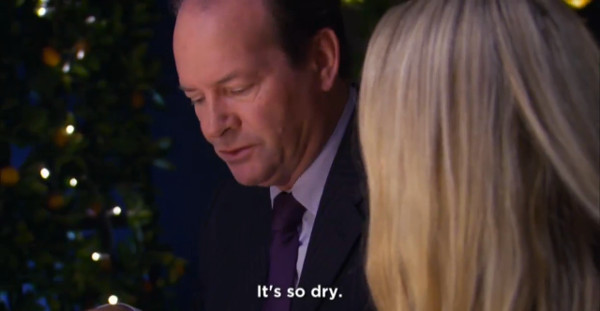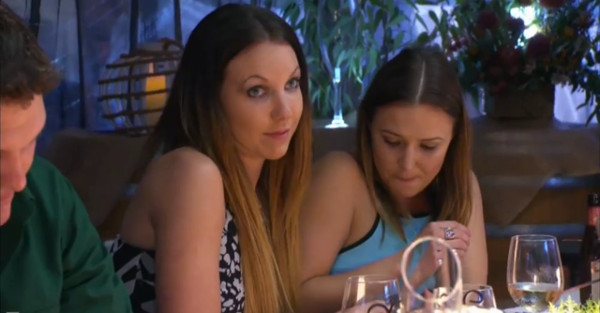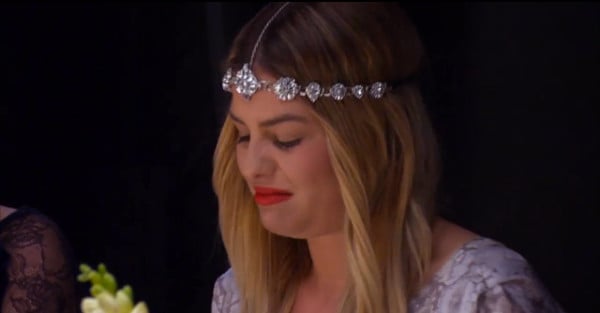The Bitching On ‘My Kitchen Rules’ Is Starting To Get Bland
"More sauce!", yells Manu.
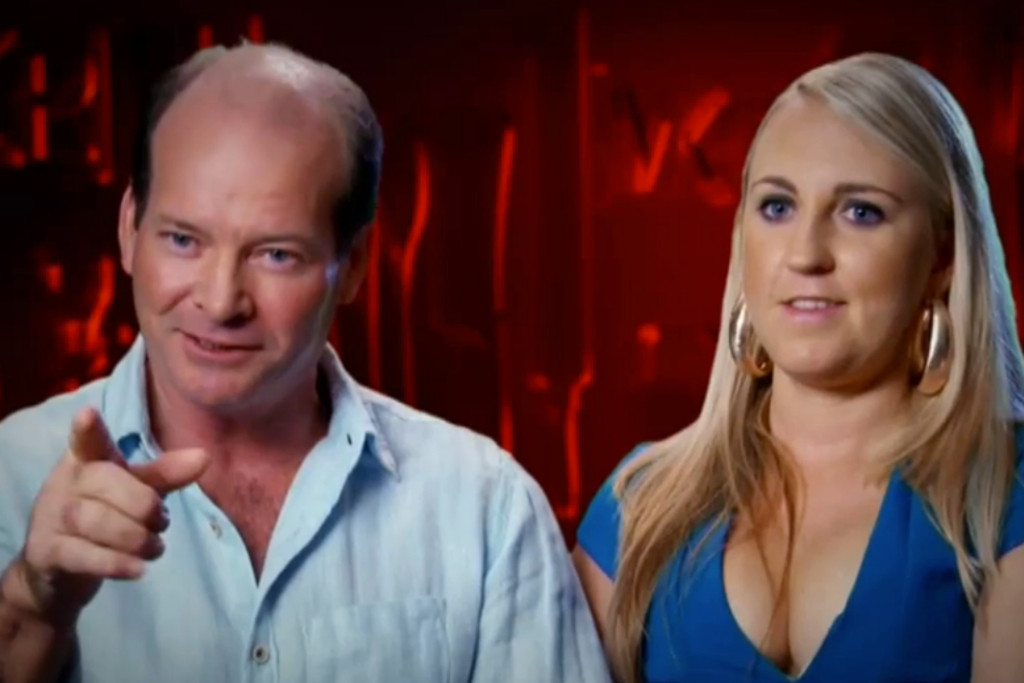
The Australian ratings season is well under way now, gracing our screens with sports, dramas, and, of course, reality television. Seven’s My Kitchen Rules (aka, ‘MKR’) is a ratings frontrunner almost every night. This is because, despite having cooking-related objectives, the show primarily focuses on inter-team disputes. It films contestants talking behind each other’s backs, and broadcasts their sentiments so viewers can feel like they’re “in” on the goss. It’s a reality television show, and it doesn’t try to hide behind its kitchen façade. But is this a sustainable arrangement?
My Kitchen Rules’s contestants are home cooks cooking at home for other home cooks. Not only does this mean that there are few post-MKR success stories (most about owning cafés or shops), but it also forces contestants to try to seek some other drama while on the show. Its ingredients are bitchiness, manipulation, and a tiny dash of cooking. Which is pretty much the whole point: My Kitchen Rules isn’t trying to do much more than build and exploit personal grudges for entertainment. If that sounds reductive, it’s ’cause the show itself is reductive: the contestants’ desire to win, to not be at the bottom of the leaderboard, to escape elimination, is embodied in their hostile behaviour.
But we shouldn’t just blame the contestants. My Kitchen Rules’s format itself is conducive to bitchiness and fighting.
–
Instant shminstant
Every “instant restaurant” dinner starts with the teams sitting around a table. They wait for judges Pete Evans and Manu Feildel to arrive, then wait longer still for their food (well, aside from one rushed entrée).
This is probably the time when teams do most of their gossiping. Thanks to clever editing, dinners that might go for eight hours are condensed into one. It gives the show’s producers the chance to cut out all the small talk, and keep just the juicy gossip. You might wonder how much alcohol the contestants consume here, and if it lessens their control over what they say — but, alas, the show is screened during prime time, so you’ll probably never know.
In one episode, as the contestants waited for their meals, WA’s Jess snidely commented on Harry and Christo’s cooking from the night before: “I wish we had these knives at your dinner party. Then we might have been able to cut our meat.” The remark had no effect on the outcome of the rest of the episode, so it’s hard to understand why it was given so much airtime. But it serves as an in-your-face reminder to viewers that terrible cooking does not go unpunished, even after the scores have been given.
The show’s producers even add subtitles of contestants complaining, insinuating that the most important parts of the show — so important they need to be seen and heard — are the criticisms, no matter how mild. It forces audiences to pay attention to the nitpicking between rival teams, building a drama based on food evaluations.
–
Real reality
Because of the show’s peer-review style of scoring, it’s not hard to imagine contestants using it as a chance to get any beef out — in cold, hard numbers.
Regardless of the food, scoring someone you have personal issues with is difficult. Rivalries are common among contestants, and viewers track these dramas. Victorian twins Helena and Vikki had an ongoing tension with WA friends Chloe and Kelly, which came to a head when Vikki spilled champagne on Kelly’s dress. “Kelly, don’t hate me! I’m sorry, I didn’t mean that,” Vikki apologised following the incident. “She already does,” replied Chloe, with an insane stare.
The twins later exacted their revenge by criticising Chloe and Kelly’s paella. Helena said, “Pete and Manu may have liked it, but we’re scoring too, and it needs to please our tastebuds.”
And so it goes. These miniscule feuds over spilt champagne and paella are the crux of My Kitchen Rules. They’re the driving force behind its drama, and its ratings.
The commentary is all about personal attacks, with little focus paid on the food, and one team is usually targeted to hate. In the first group, Chloe and Kelly were the resident bitches. In the second, David and his trophy wife, Corinne, were tagged as the villains. Both are now in the last round of instant restaurants, and are continuing their respective condemnations of every dish placed before them.
The groups are, again, antagonistic towards the three new teams of ‘Gatecrashers’. Their commentary has been endlessly negative, with charming sentiments such as, “This is our turf, punks”, “They don’t look like they’re going to be nice”, and “They have no idea what they’re up against”. Before even meeting the new people, the contestants are already defensive.
–
Haters gonna hate
Cooking shows are a strange breed of reality TV. Unlike Idol, X Factor, or even So You Think You Can Dance, audiences are unable to make an assessment because they cannot access the performance. Thus, they must rely on the show’s chosen judges for a verdict. Viewers have been so sceptical of My Kitchen Rules’s methods that Manu has had to defend the show against rumours of rigging.
All the bitching and fighting is the result of a well-edited television show — even the contestants say so. In principal, there’s nothing wrong with selecting the meanest bits out of all-night dinners, but there should be some substance to them. The bitchy groups, lo and behold, can’t actually put up anything worthwhile (both villainous teams are now fighting to stay on, and Jess was eliminated shortly after she suggested she join the judging panel), so the competition itself becomes little more than a backdrop to the teams’ own desires to get at each other’s throats.
The human spirit craves drama and competition, whichever way it’s framed. Television producers know this, and exploit it. My Kitchen Rules has found a format that works in its favour: on average, 1.7 million Australians hunger for their sort of daily dose of kitchen bitchiness.
That said, the show needs to come up with something other than an infrequent schedule, new setups, and random Gatecrashers to keep viewers coming back for seconds. There’s only so long that people can hate on one team because they made a disgusted face with a loud drum in the background. Petty gossip in excess is overpowering; there needs to be a different flavour to cut through the bitterness.
–
My Kitchen Rules airs on Seven on Sundays at 6:30pm, and Monday, Tuesdays and Wednesdays at 7.30pm.
–
Michelle See-Tho is editor of Farrago, and a freelance writer and journalist. Her work has appeared in The Conversation, Kill Your Darlings, and Crikey. Follow her on Twitter at @stmischa
